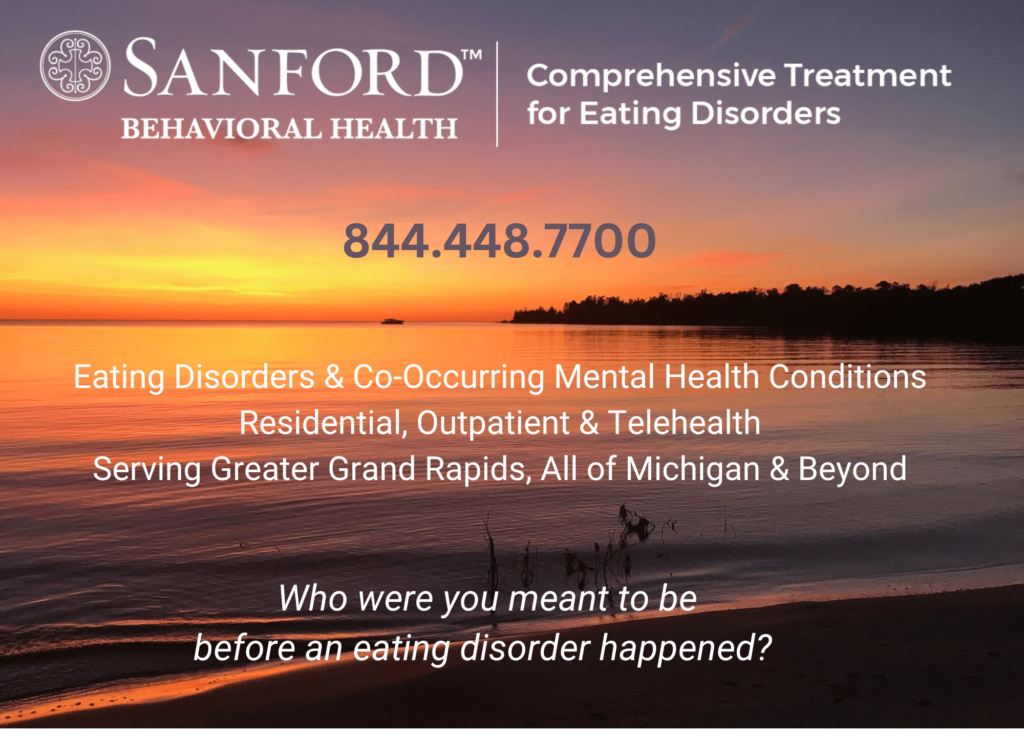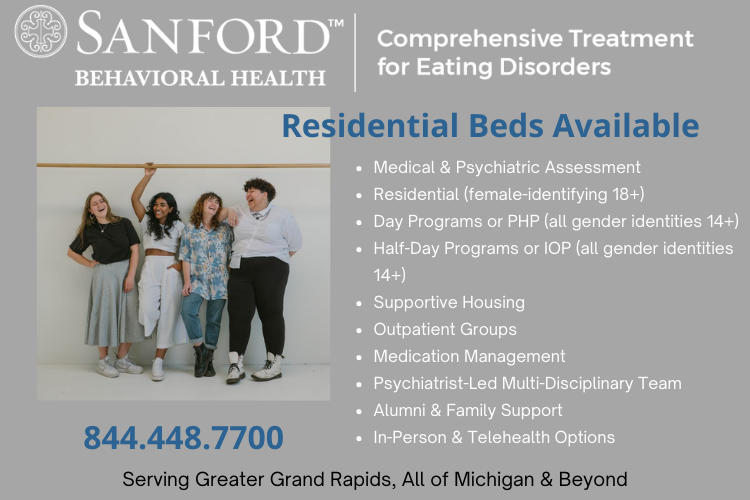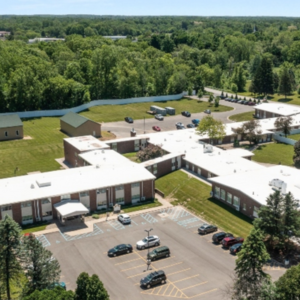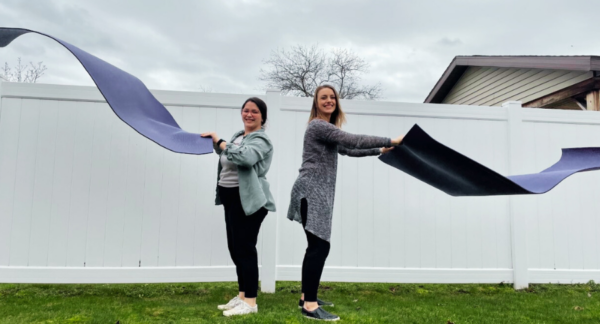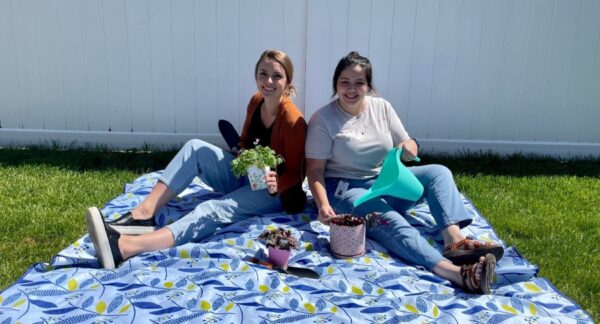Should Treatment for Eating Disorders Be FUN?
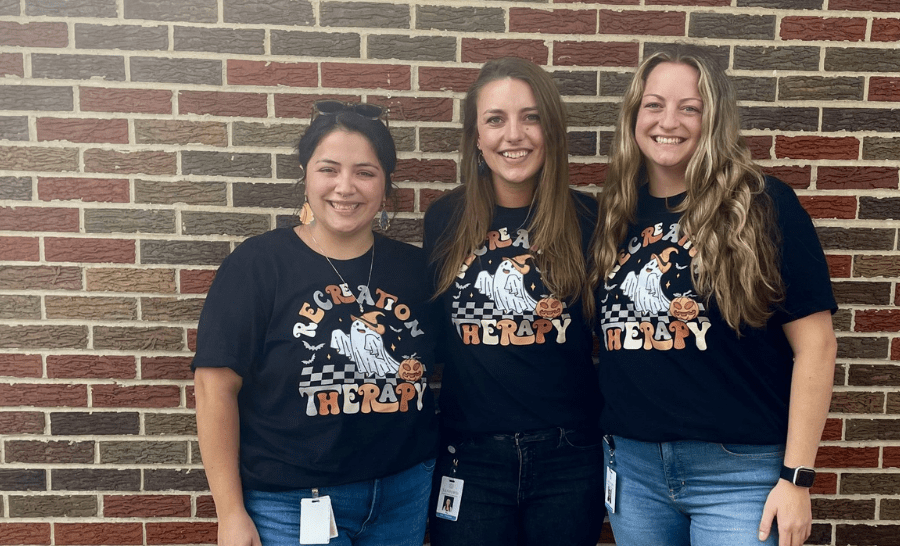
Recreational therapists Raina Bawden, Tori TerAvest, and Amy Kosiba are preparing for “Spooky Week.”
The recreational therapy team at Sanford Comprehensive Treatment for Eating Disorders (SCTED) is always an inspiring group to interview. They take on many roles, so you might find them running process groups, leading a light yoga session, driving a van on an excursion to a restaurant, or in a huddle with the interdisciplinary team. Whatever they do, they are keen to show SCTED clients that treatment can have its fun aspect. They say, “We want to show our clients it’s a colorful world.”
FUN Treatment for Eating Disorders
We sat down with Raina Bawden, CTRS, and Amy Kosiba, CTRS, to talk about their upcoming Spooky Week and why fun treatment is so vital to lasting recovery. Spooky Week (October 24-31) is for all levels of care and includes everything from Halloween treats in the baking group and a PJs movie night (Hocus Pocus?) to dress-like-Adam-Sandler-day.
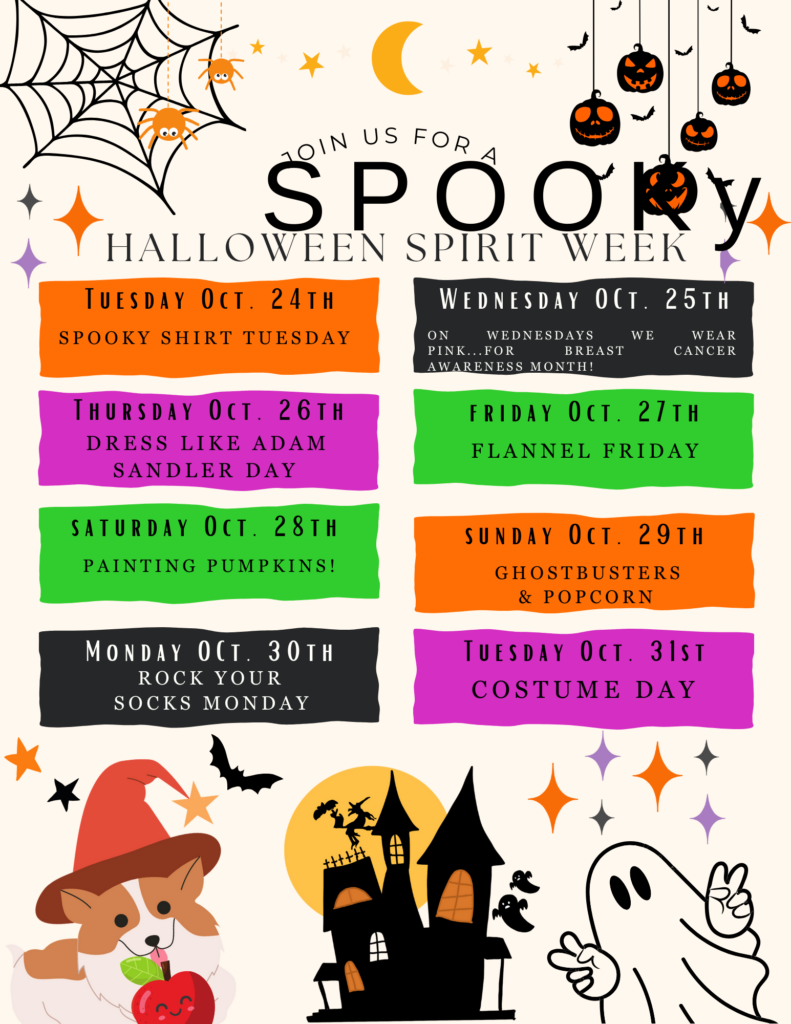
Colorful activities for the inner child!
SBH – Should Eating Disorder Treatment Be Fun?
Raina Bawden – Life is hard in treatment and recovery. As recreational therapists, we are here to help our clients renew or, for the first time, discover a love for life and that silliness we all have inside us. We give them the opportunity to find the positives and get out of the rigid bubble they have themselves in.
Amy Kosiba – Many clients come to us with tunnel vision that they are here for treatment. They think this will be the worst experience of my life. That is scary. So, that’s where we come in to make things a little lighter, bring in the color, and see their personalities return. It’s really interesting to see the difference between when they admit and when they discharge from residential treatment. The difference is like night and day. They slowly start to come out of their shell with us and feel more comfortable because we are the ones who are helping them get in touch with their inner child. That is something they lost due to their eating disorder.
Even before October started, we were prepping for Spooky Week. We were doing experiential groups to make decorations. We made a Snoopy pumpkin patch and paper chains. Our focus is on making things feel “homey” and not like a hospital. All these activities bring the life and light back into our clients’ eyes. It is moving and motivating to see individuals change and become their true selves again.
SBH – What Does Real-Life Recovery Mean to You?
Raina Bawden – Real-life recovery means healing all the different parts of our clients, including the part that is not about eating. It’s not just about food (a lot of it is). Real-life recovery is facing life head-on, and we are working on healing the whole person.
Amy Kosiba – Real-life recovery is the ups and downs because recovery is not linear. We point this out to our patients three times a day! Recovery is not linear. We have clients who say, “I was doing really well until one meal,” or “I was getting my thought diffusion until…” They see it as the be-all and end-all. But we keep reminding them you can have a down day without ruining your recovery. It’s not like a video game where you get one life, and you are done (laughs). You can click “deal over” and keep going. You just have to show up for yourself each day. It’s a matter of time before it clicks.
Thank you, Amy and Raina – this was fun.
If you or a loved one is struggling with an eating disorder, addiction, or co-occurring mental health conditions, don’t wait to change your life – click the link and get in touch today.
